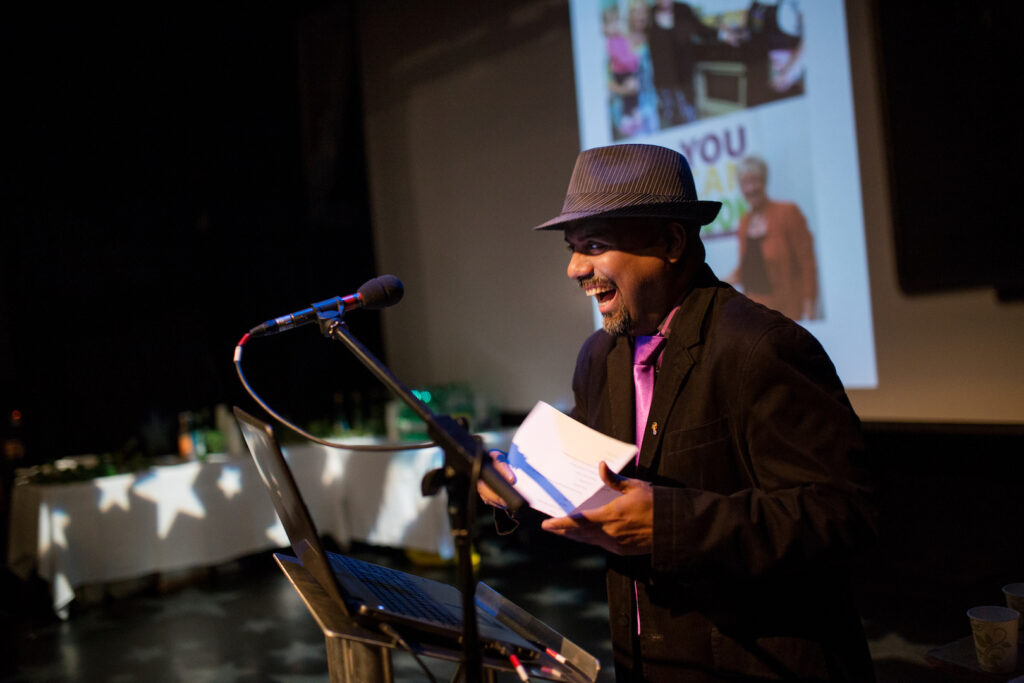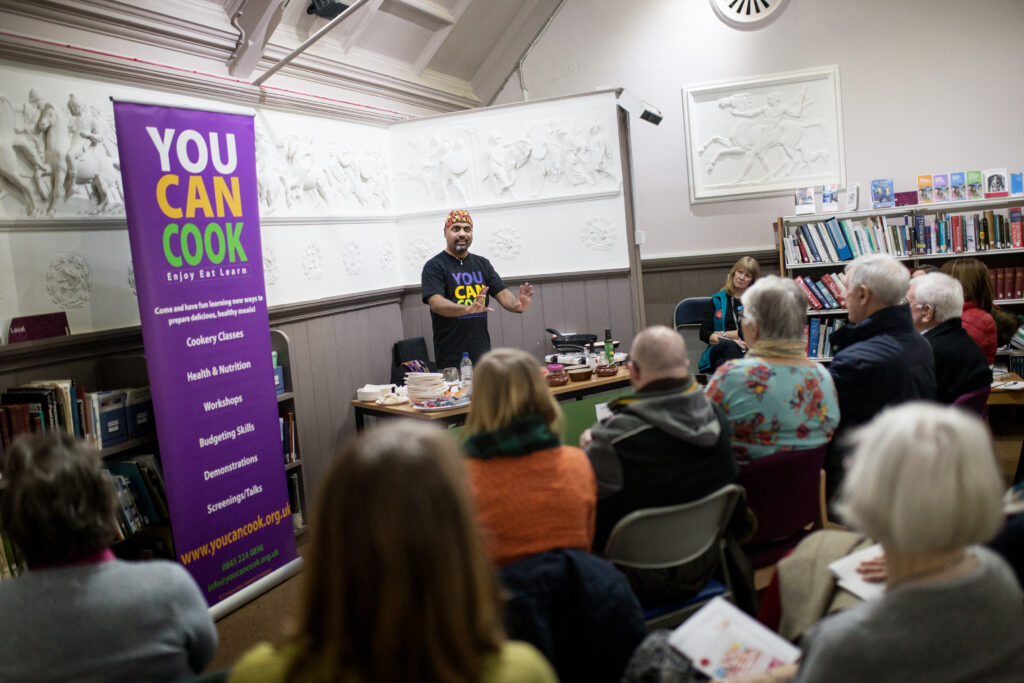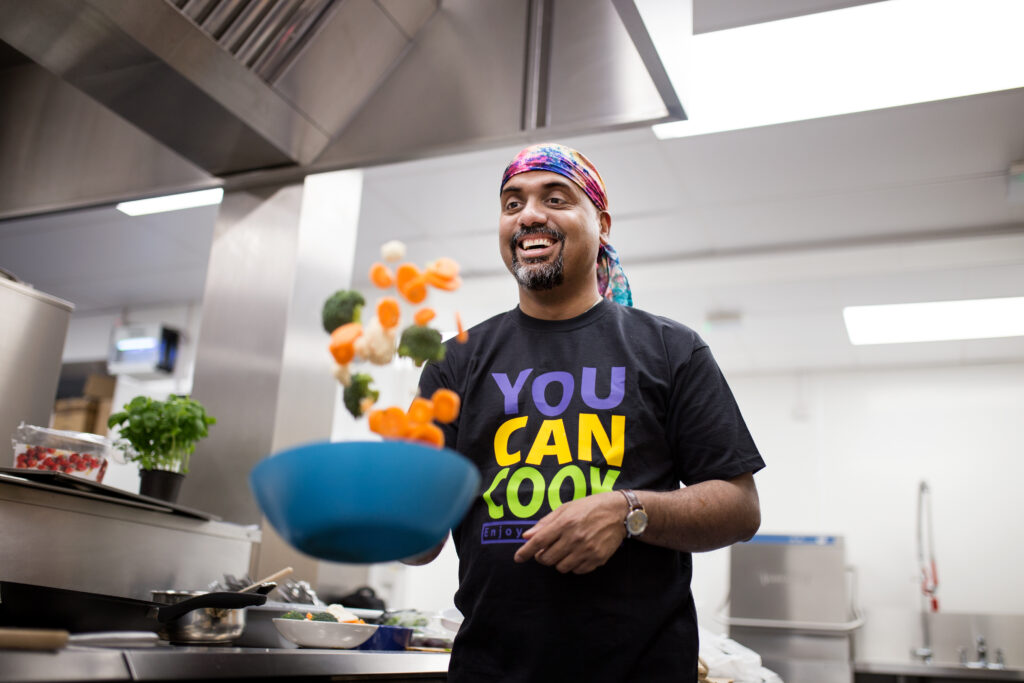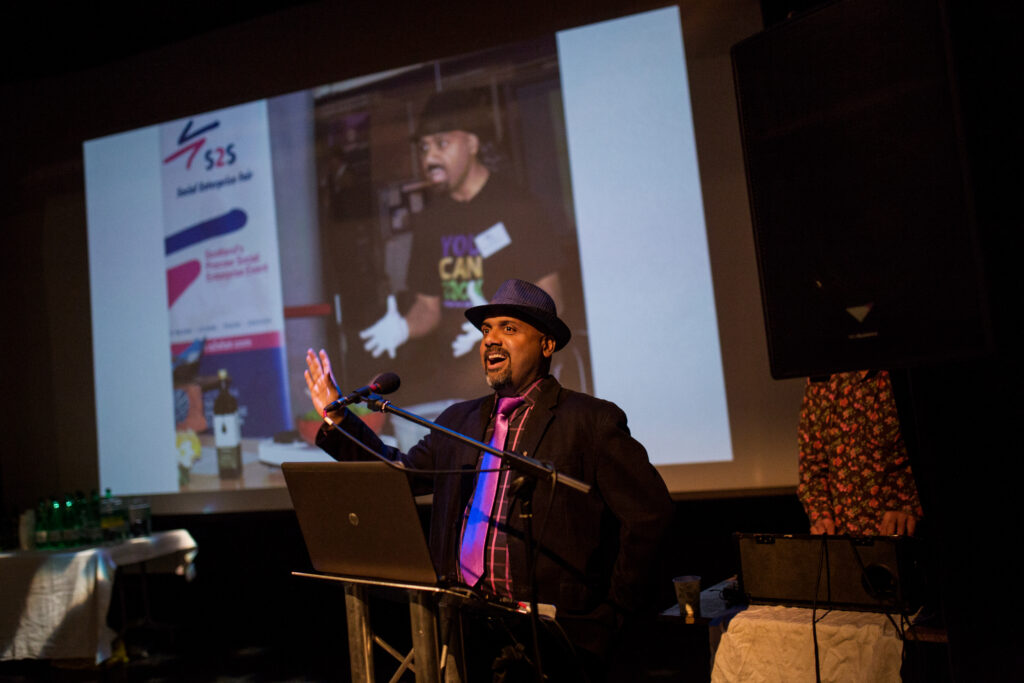
This week Bosco Santimano founder and executive director of social enterprise You Can Cook, shares his thoughts on the good food nation bill introduced in the Scottish Parliament last year in a two-part series.
Last Sunday I was invited to be part of the BBC Radio 4 “The Food Programme”. You Can Cook along with Locavore; Edinburgh’s new organic and ethical supermarket. Our organisations were the only two social enterprises that took part in this programme that assess the country’s health and food system, and looked at what opportunities and hurdles lie ahead as the Good Food Nation Bill was introduced to the Scottish Parliament last year by MSP Mairi Gougeon for Angus North and Mearns and Cabinet Secretary for Rural Affairs and Islands.
So, what is the Good Food Nation Bill? The Bill requires the Scottish Ministers and certain public bodies to create Good Food Nation Plans. The relevant bodies identified in the Bill are health boards and local authorities (or councils). Other public bodies may be required to produce plans in the future. The Scottish Ministers and relevant authorities need to have regard to these plans when carrying out certain functions. These functions will be set out by the Scottish Ministers in secondary legislation that will be considered by the Parliament. The Bill was created to support the ambition of the Scottish Government that Scotland becomes a ‘Good Food Nation’. In 2014, the Scottish Government published a discussion document titled ‘Recipe for Success: Scotland’s National Food and Drink Policy – Becoming a Good Food Nation’ which made a commitment that by 2025, Scotland will be “a Good Food Nation, where people from every walk of life take pride and pleasure in, and benefit from, the food they produce, buy, cook, serve, and eat each day”.
The Bill encompasses the following key concepts:
- The people of Scotland taking a keen interest in their food
- The people who serve and sell food ensuring that it is good quality food
- Everyone in Scotland having easy access to the healthy and nutritious food that they need
- Dietary related diseases declining
- The environmental impact of food consumption decreasing
- Scottish producers ensuring that what they produce is increasingly healthy and environmentally sound.
Children in Scotland have responded to the Scottish Government’s consultation on the Good Food Nation Bill, calling for the right to food to be incorporated into Scots law. Some readers may be aware that the ‘right to food’ Scotland bill covers very different aspects of food and was proposed by Labour MSP Rhona Grant and the intention is to incorporate the bill in Scots law. In the final part of my column, I will look at what the Good Food Nation Bill actually does in practice and the importance of linking it with the Right to Food Scotland Bill in order to have a positive and long-term impact on Scotland’s population and environment.
*Originally written & published in the Peeblesshire News.



